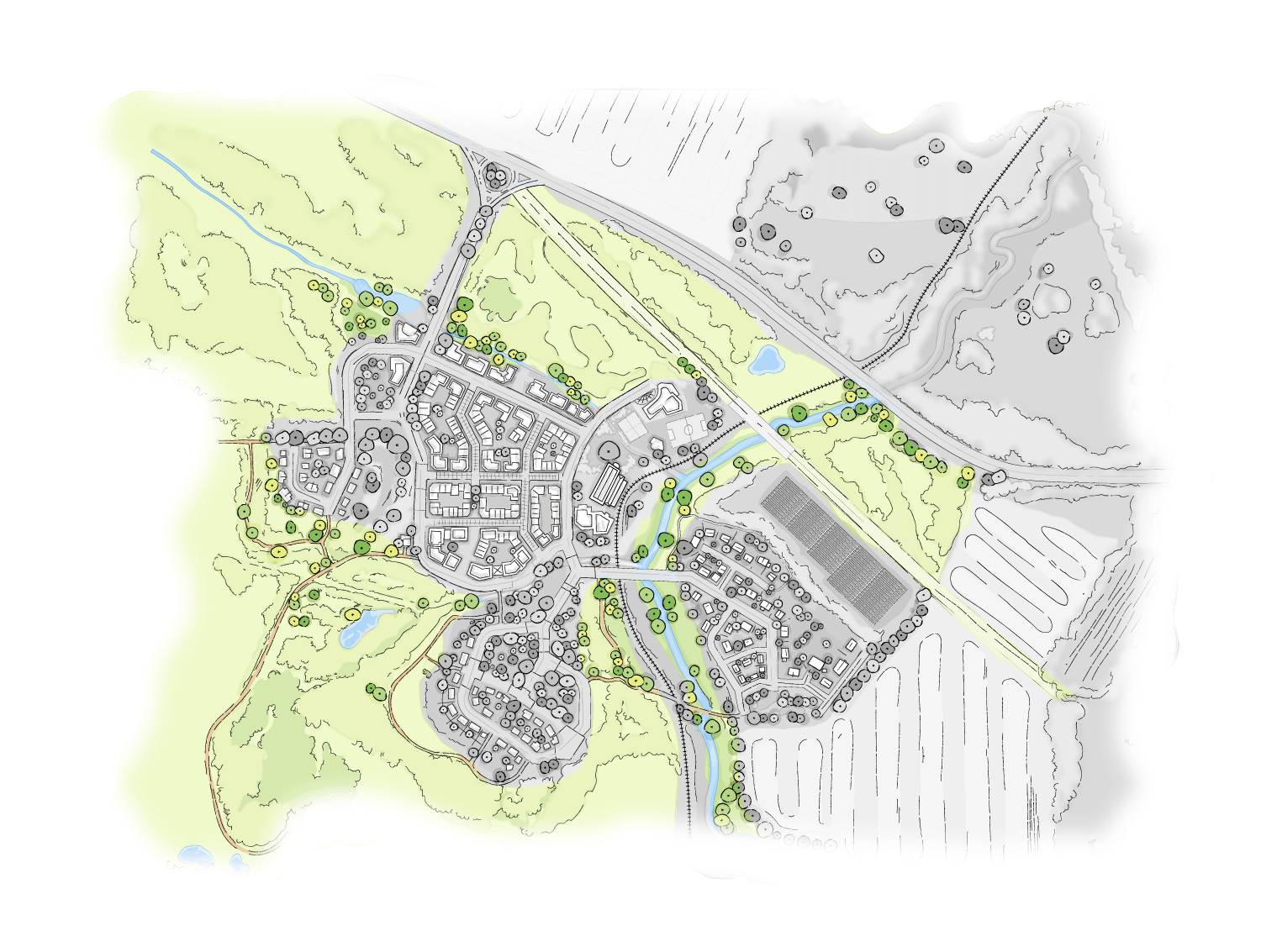MELILLO EQUITIES is an award-winning real estate private equity firm uniquely positioned to disrupt the automobile-dependent culture of New Jersey’s suburban landscape. Collaborating closely with municipal leaders and community stakeholders, we work to promote the reemergence of historic town centers as facilitators of economic resilience, community well-being, and social equity while preserving significant cultural and environmental heritage in the process.
The largest long-term holder of boutique real estate within our targeted communities, Melillo Equities is known for our distinctive approach to transforming historic properties into premier living, working, and shopping environments. We oversee all aspects of development from inception to fruition, including market analysis, site acquisition, design / planning, entitlement, construction management, and ongoing asset management.
VISION
THE SURGE IN SUBURBAN POPULATION has brought forth many challenges in the spatial distribution of people, as well as in the use and consumption of land. With traditional automobile-centric zoning policies favoring the development of single use properties, we find NJ’s horizontally sprawling communities struggling to cope with infrastructure deficiencies, congestion, and social fragmentation.
At this pivotal time, the future demands a radical shift in the suburban paradigm away from decades of outward sprawl. We advocate for the strengths of traditional, pedestrian-centric Main Street - once the social, cultural, and economic backbone of our communities. Our forward-looking view of a more resilient suburbia is best achieved through a prudent combination of applied Smart Growth principles, policy reform, and community engagement.
We illustrate several key examples in the map below:
We illustrate several key examples in the map below:
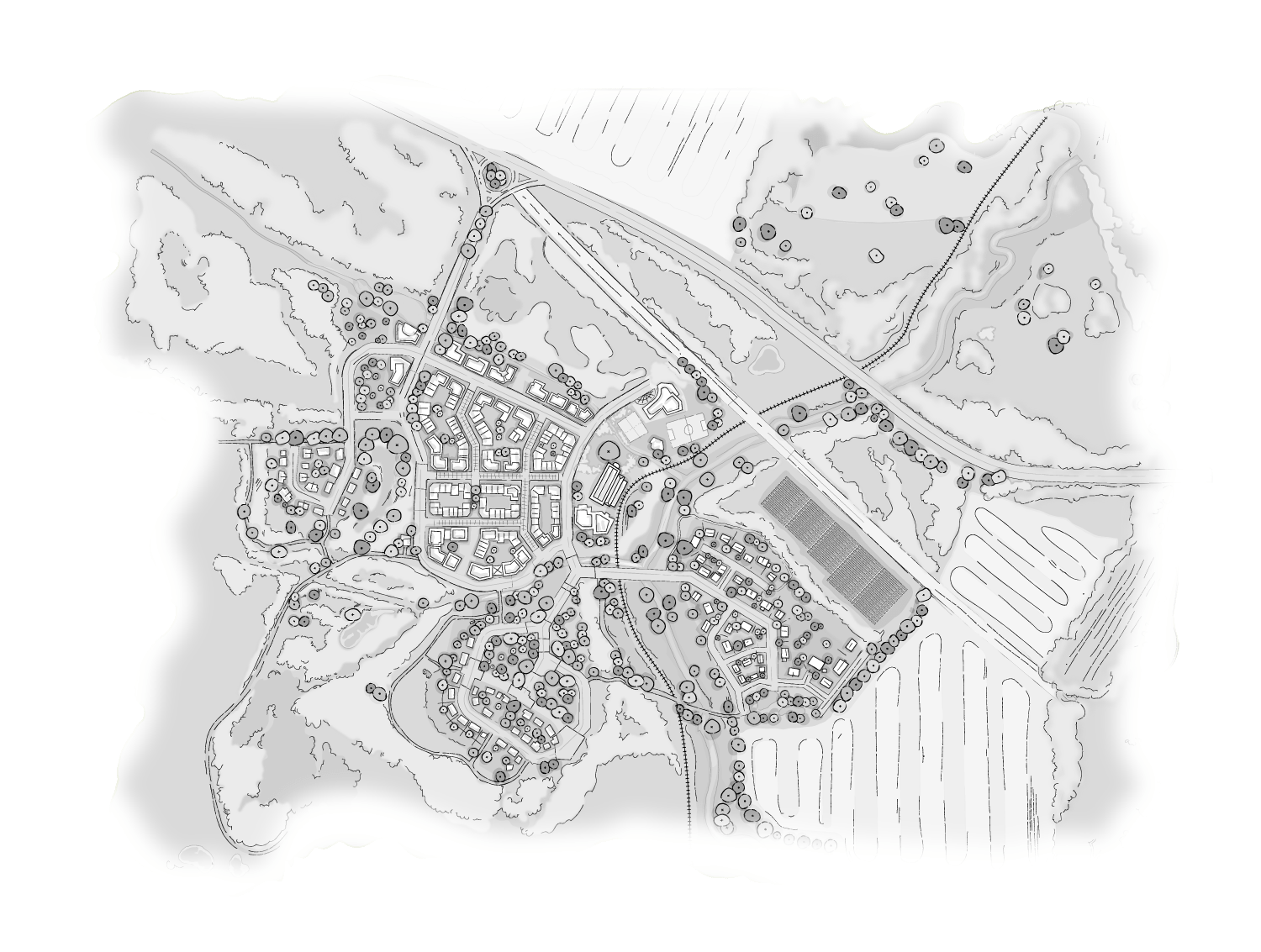
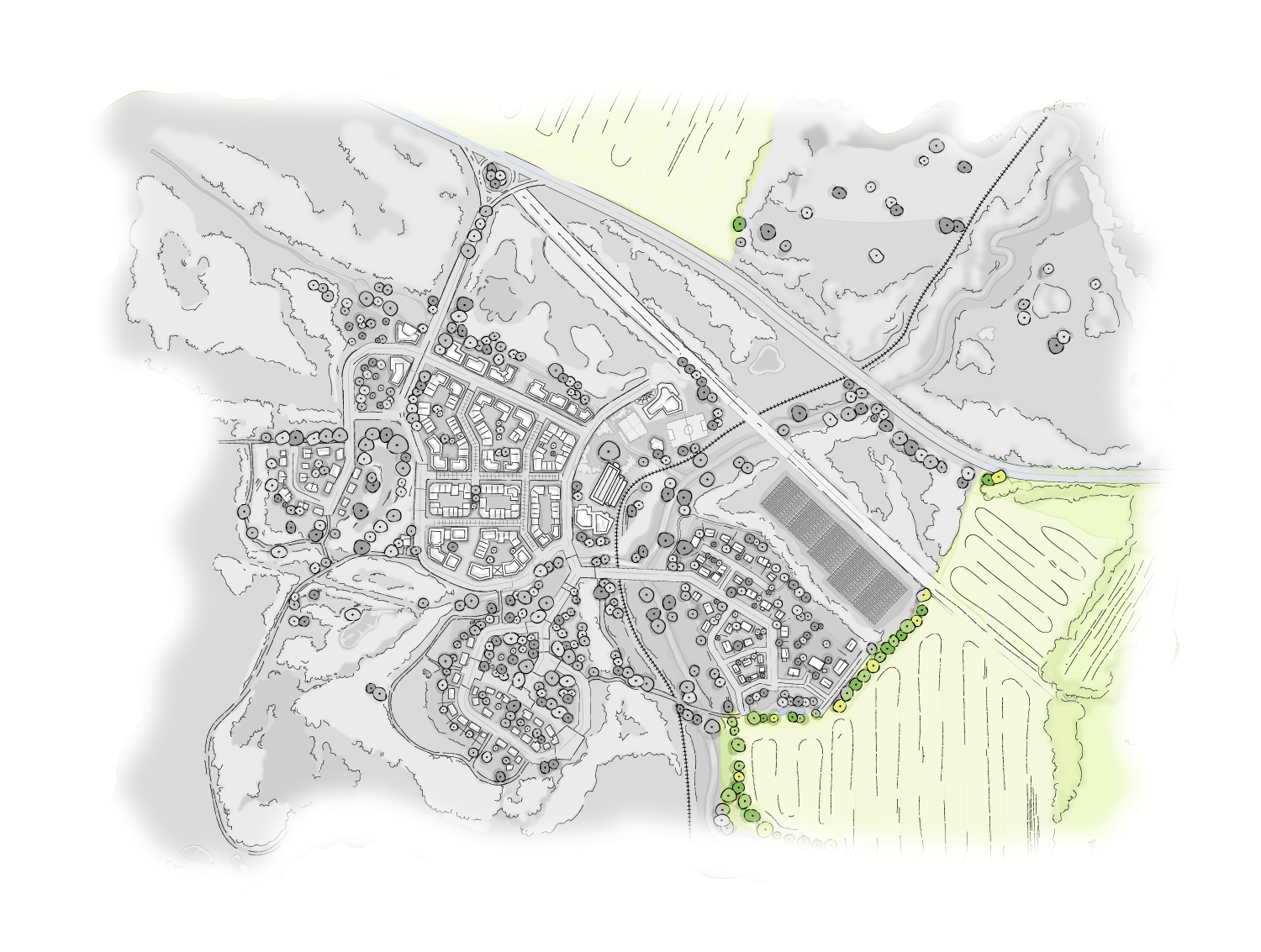
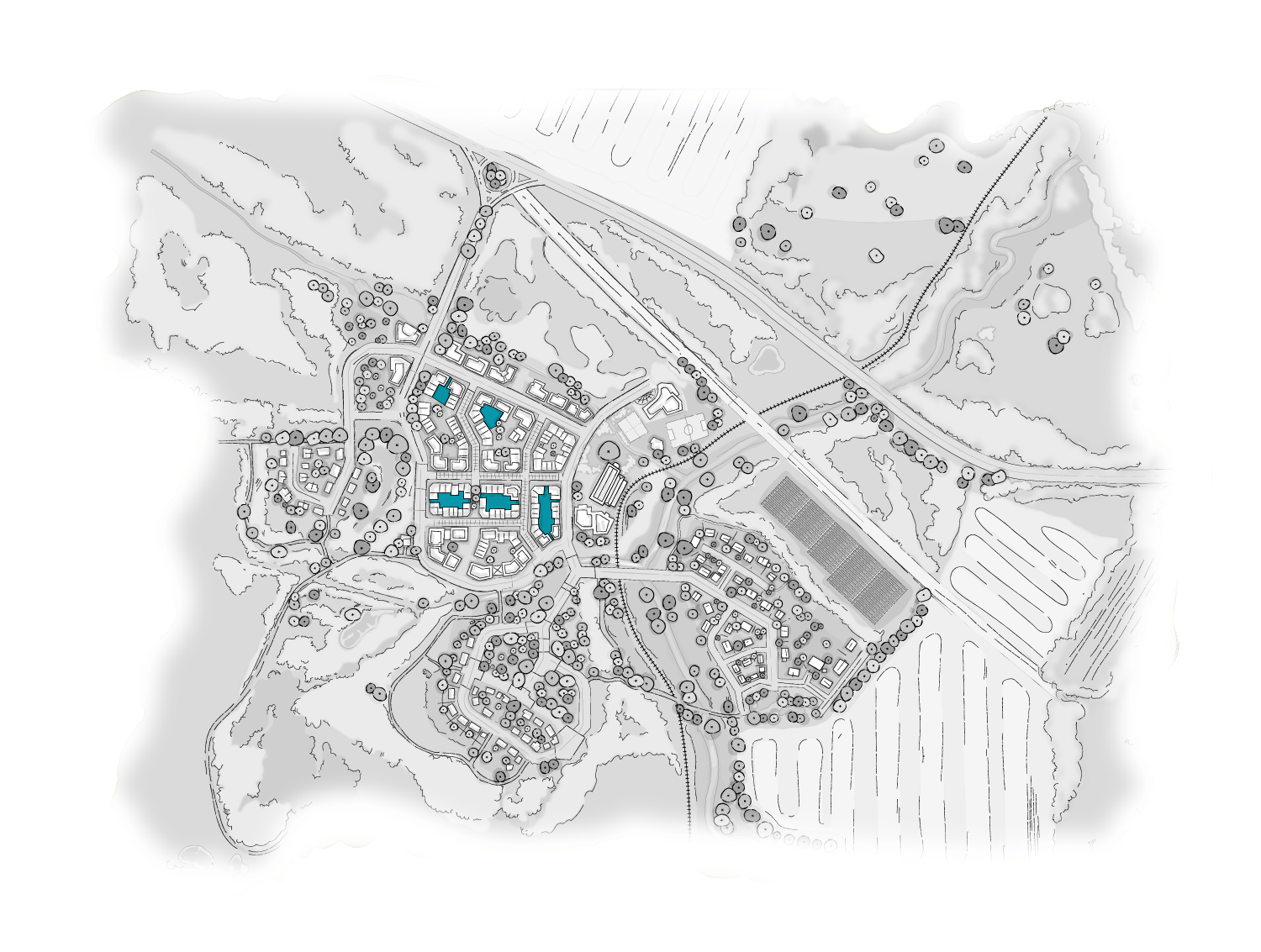
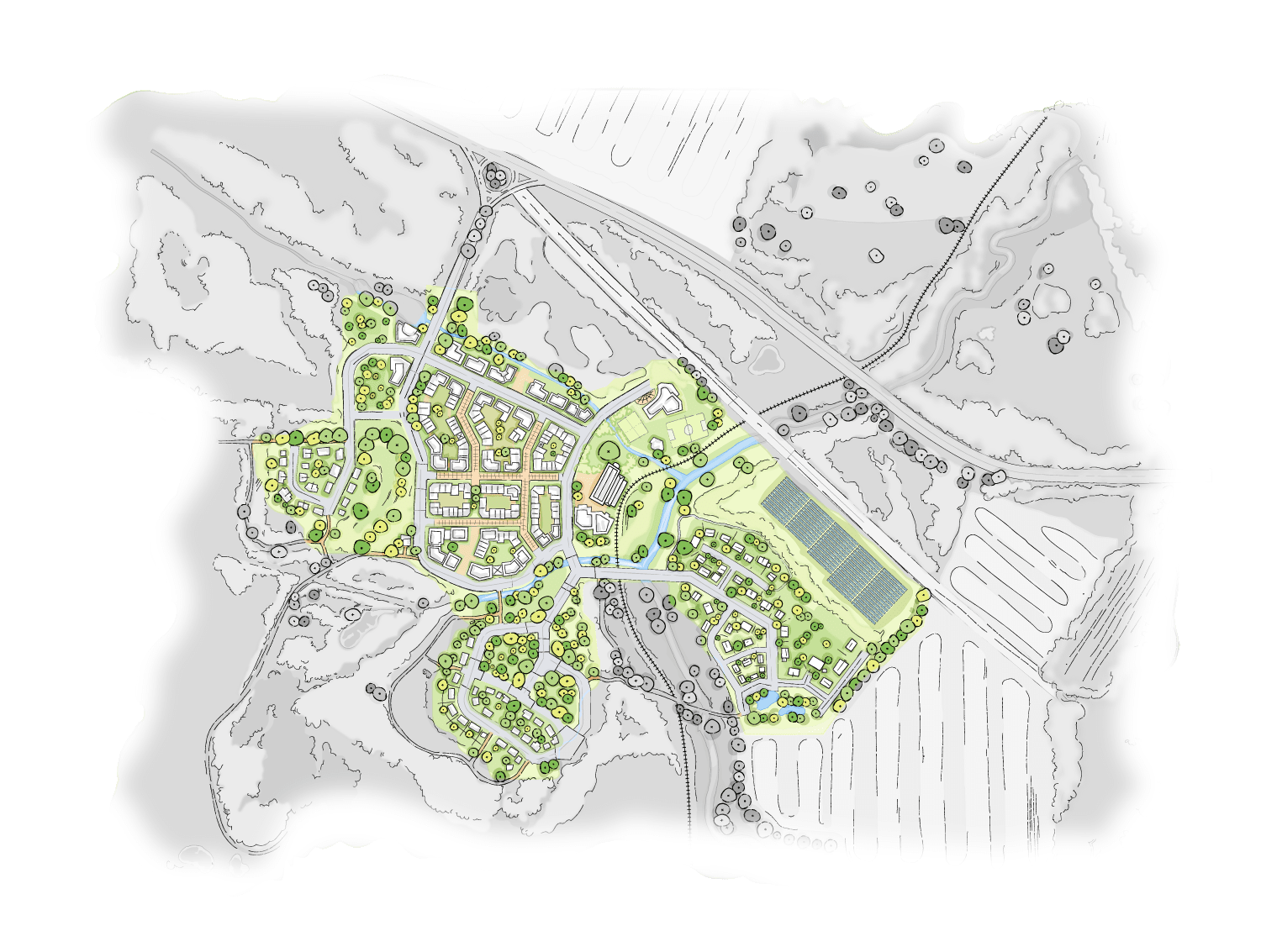
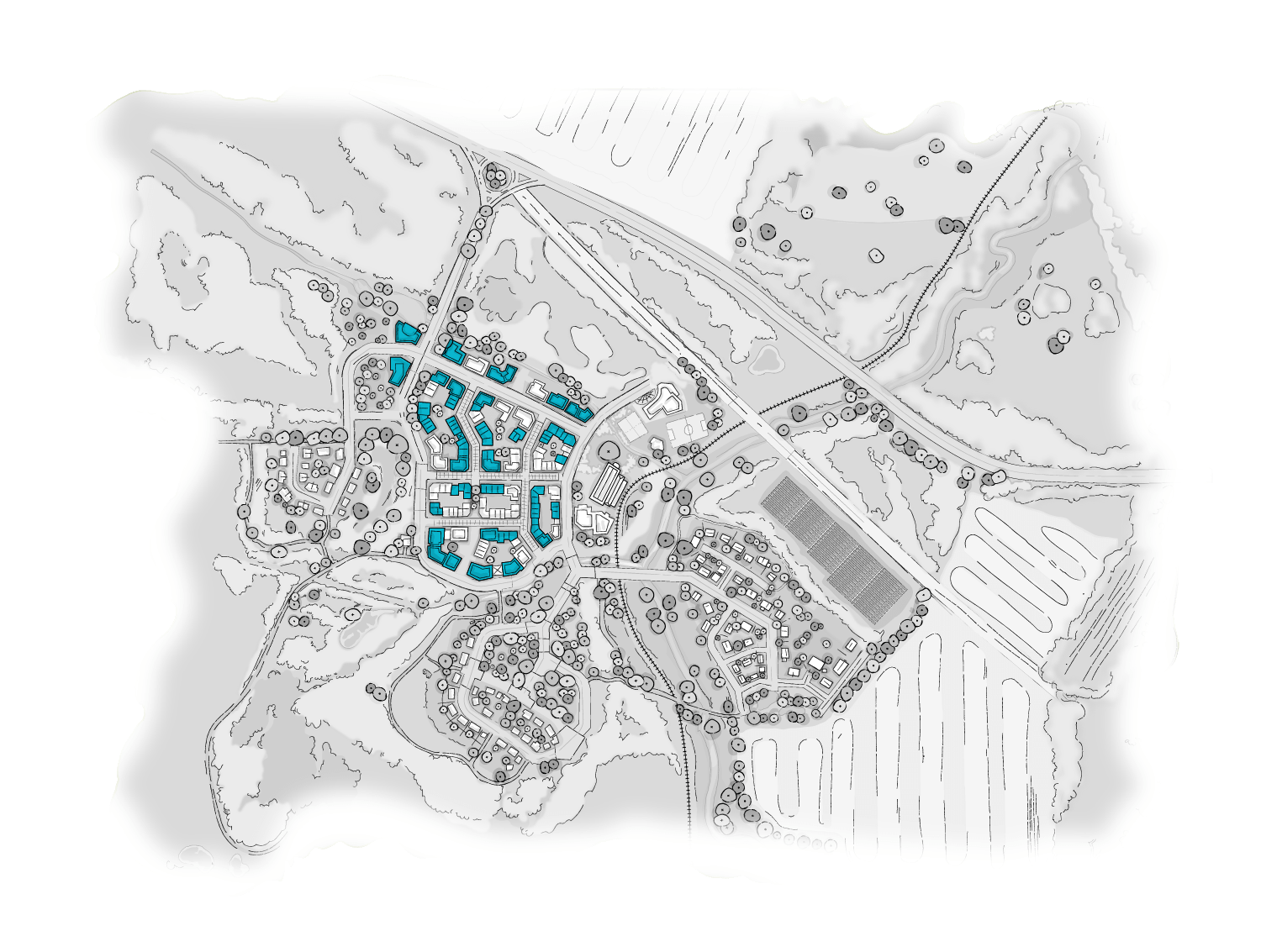
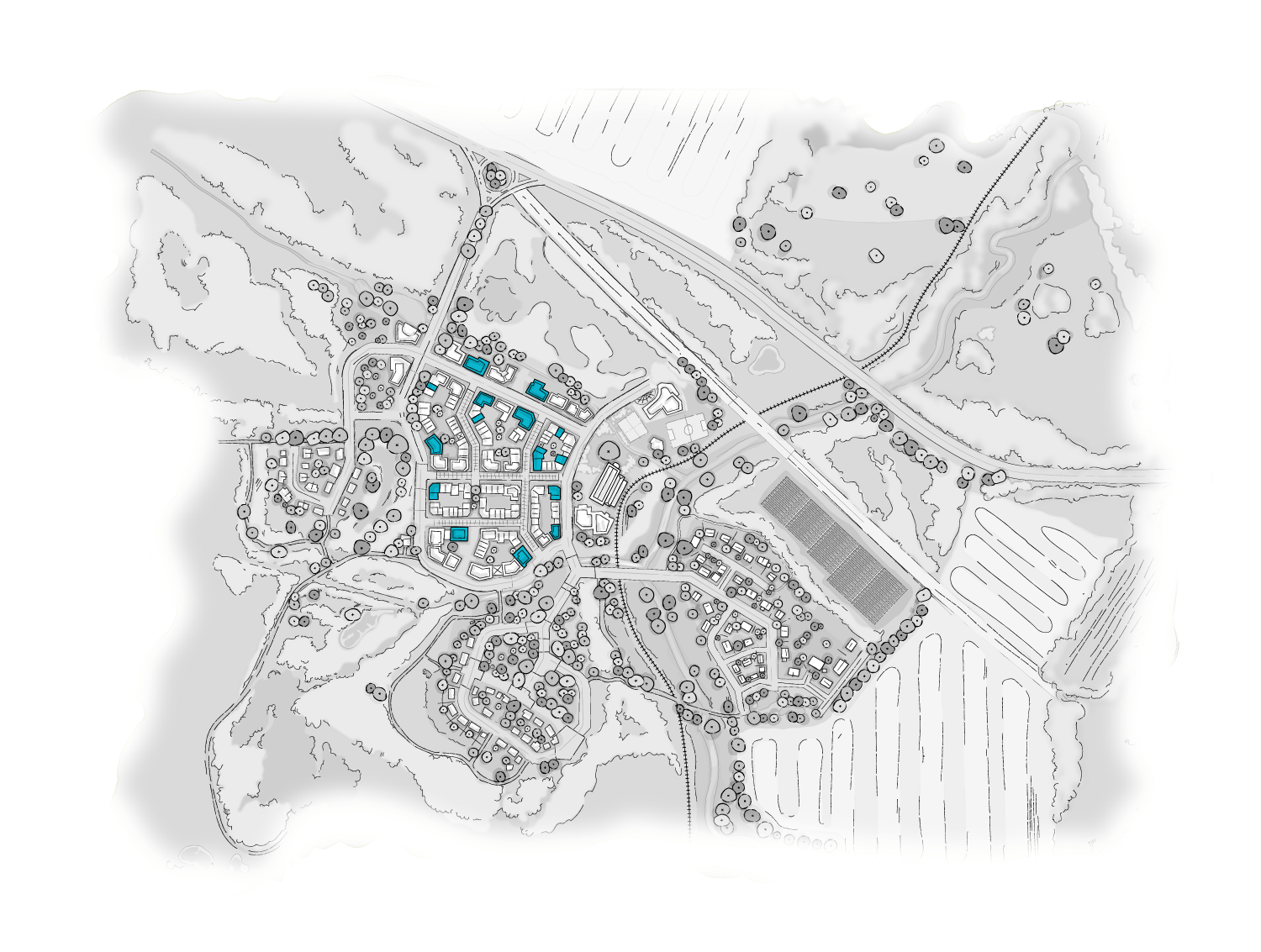
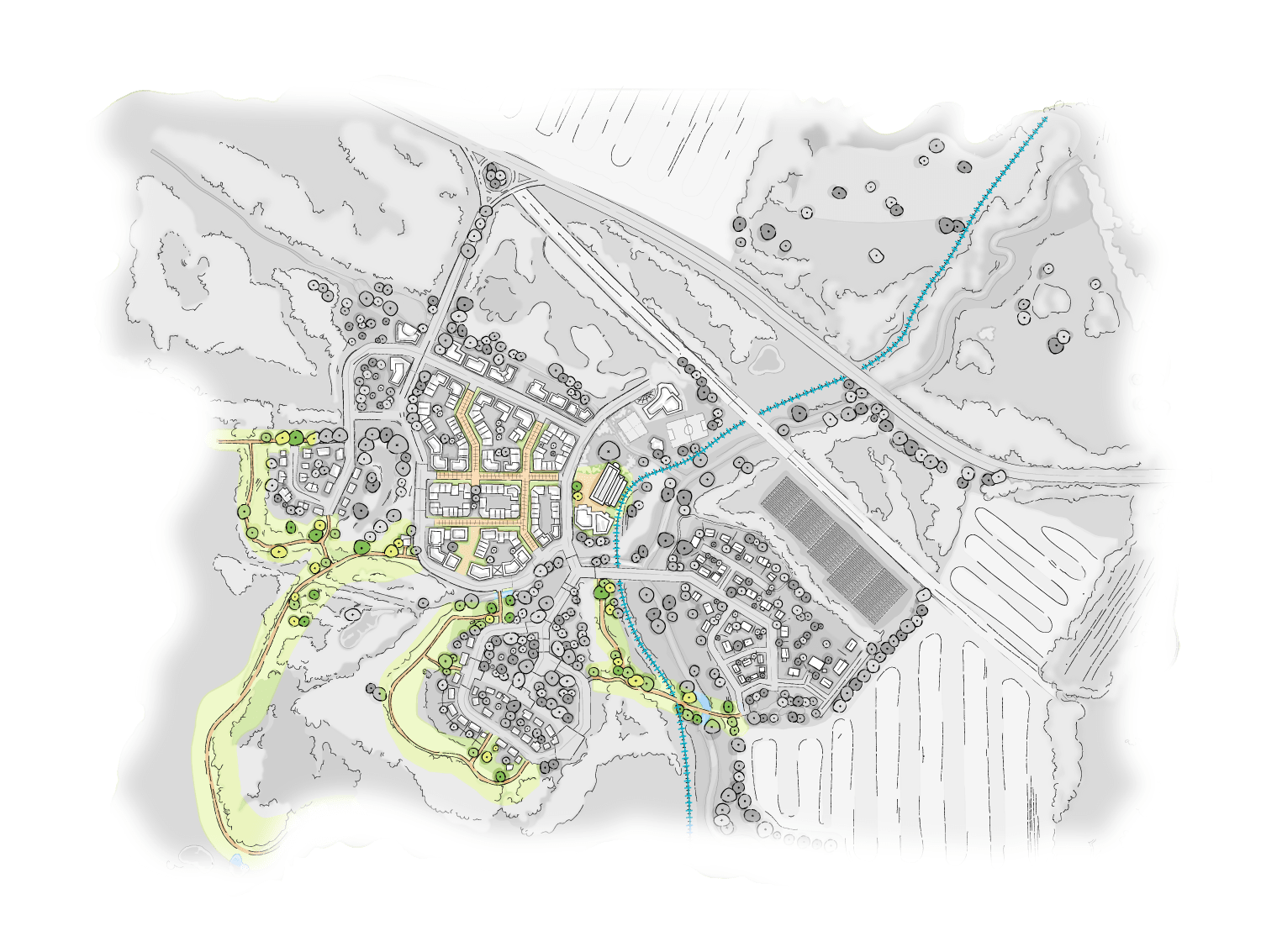
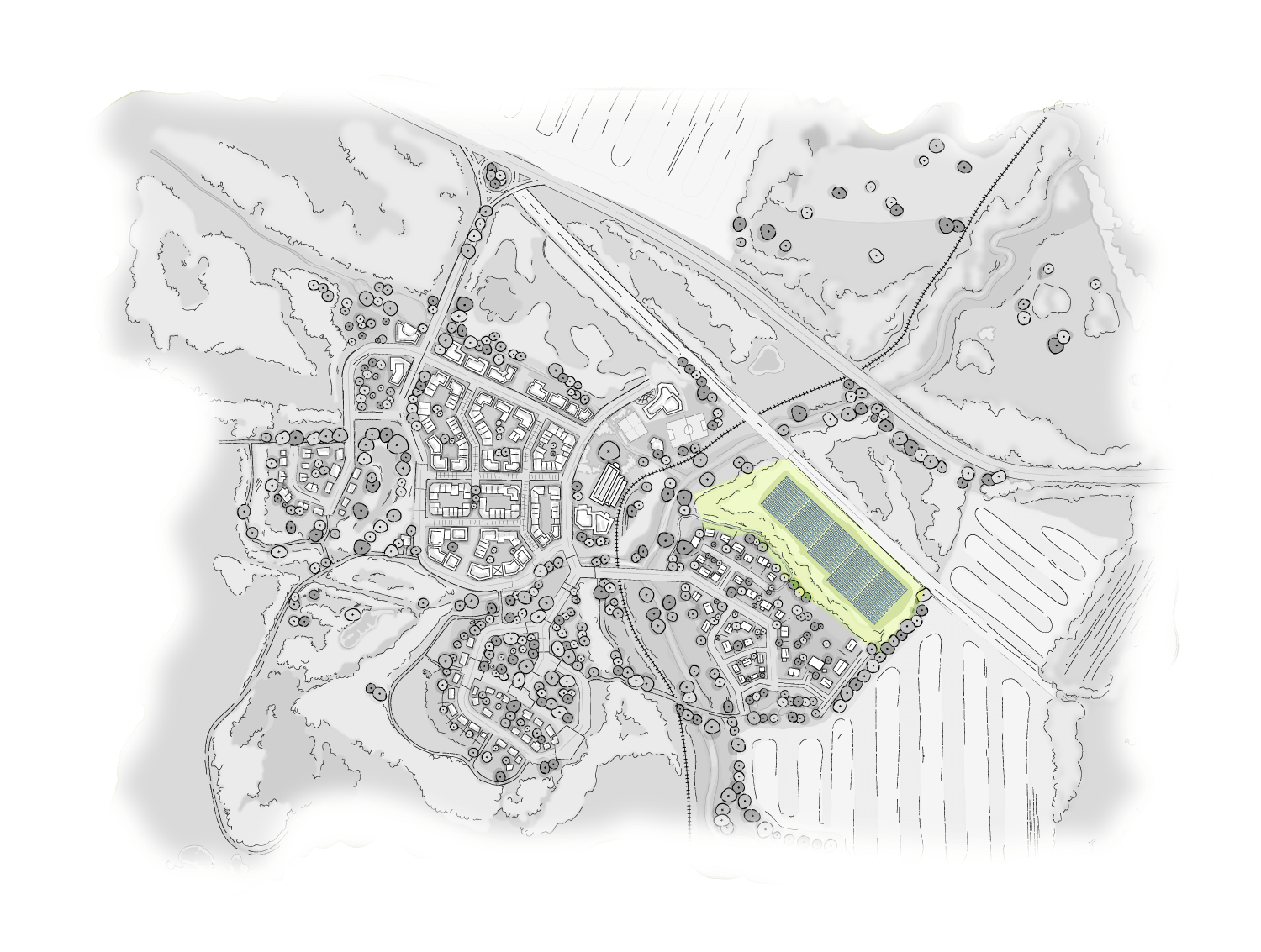
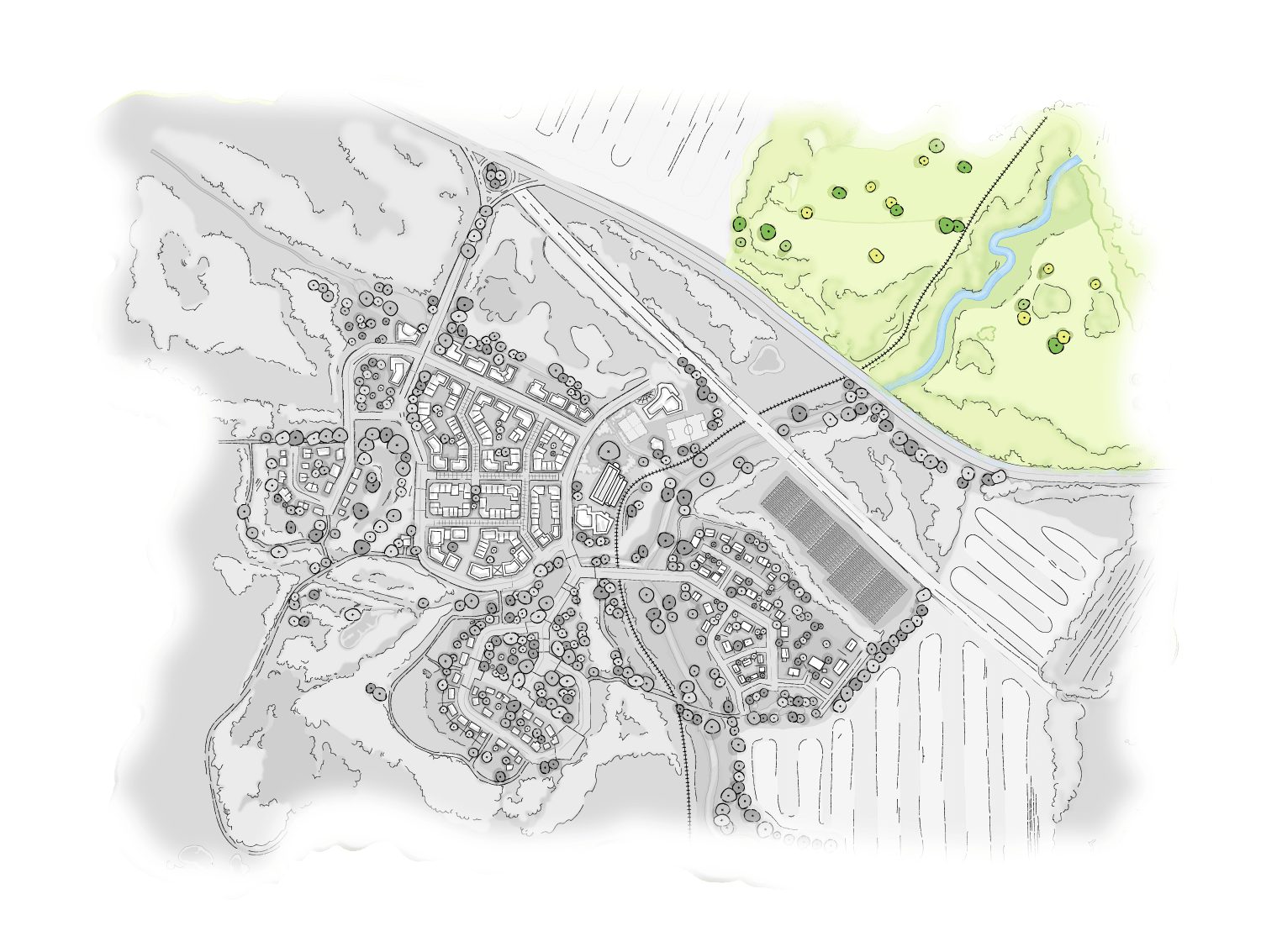
Localized Food System
Direct access to freshly harvested food ensures greater nutritional value at a lower price point, while reducing one’s overall carbon footprint by eliminating long-haul transportation and cold storage practices.
Municipal Parking Authority (“MPA”)
As suburban growth trends away from cul-de-sacs and toward town centers, the scarcity of available land elicits the need for structured vs. surface parking. While aesthetics and cost may be a concern, today’s designs are visually unobtrusive and complement surrounding streetscapes. When financed through MPA-issued bonds, their construction, maintenance, and management can become self-sustaining through leased parking revenue.
A Hard Edge
Defining a formal growth boundary around the downtown periphery protects surrounding natural and agricultural land from development, while reducing municipal investment in water, sewer, and road infrastructure.
Housing Mix
With housing supply shortages impacting many suburban towns, it has become imperative that restrictive single-family zoning within walking distance to a downtown be adapted to accommodate all walks of life – ranging from young professionals to empty nesters and everyone in-between.
Inclusionary Zoning (IZ)
Zoning policies that blend affordable and market-rate homes help dispel lower-income stereotypes, improve social mobility, and foster cultural appreciation.
Connectivity
A well-connected, human-scaled network of trails, bike paths, sidewalks and narrower streets encourages pedestrian activity, increases community health, reduces traffic, and supports alternative, economical means of travel. Successful connectivity is typically achieved through a more comprehensive Master Plan which combines long-term vision, community feedback and effective collaboration between local leaders and the private sector.
Municipal Energy Independence
Negotiating aggregated rates from non-utility suppliers of renewable energy such as solar, wind and hydroelectric helps communities reduce utility expenses while minimizing their carbon footprint.
Transfer Of Development Rights (TDR)
Loss of forest, farmland, and natural ecosystems along the periphery of suburban towns is accelerating. TDR redirects growth away from these properties and toward already-developed “infill” sites within town centers, in which municipal infrastructure exists and development density is preferred.
Localized Food System
Direct access to freshly harvested food ensures greater nutritional value at a lower price point, while reducing one’s overall carbon footprint by eliminating long-haul transportation and cold storage practices.
Municipal Parking Authority (“MPA”)
As suburban growth trends away from cul-de-sacs and toward town centers, the scarcity of available land elicits the need for structured vs. surface parking. While aesthetics and cost may be a concern, today’s designs are visually unobtrusive and complement surrounding streetscapes. When financed through MPA-issued bonds, their construction, maintenance, and management can become self-sustaining through leased parking revenue.
A Hard Edge
Defining a formal growth boundary around the downtown periphery protects surrounding natural and agricultural land from development, while reducing municipal investment in water, sewer, and road infrastructure.
Housing Mix
With housing supply shortages impacting many suburban towns, it has become imperative that restrictive single-family zoning within walking distance to a downtown be adapted to accommodate all walks of life – ranging from young professionals to empty nesters and everyone in-between.
Inclusionary Zoning (IZ)
Zoning policies that blend affordable and market-rate homes help dispel lower-income stereotypes, improve social mobility, and foster cultural appreciation.
Connectivity
A well-connected, human-scaled network of trails, bike paths, sidewalks and narrower streets encourages pedestrian activity, increases community health, reduces traffic, and supports alternative, economical means of travel. Successful connectivity is typically achieved through a more comprehensive Master Plan which combines long-term vision, community feedback and effective collaboration between local leaders and the private sector.
Municipal Energy Independence
Negotiating aggregated rates from non-utility suppliers of renewable energy such as solar, wind and hydroelectric helps communities reduce utility expenses while minimizing their carbon footprint.
Social Equity Via Public Amenities
As NJ’s income gap continues to widen, access to publicly funded amenities such as parks, trails and greenways must be considered an essential equalizer, offering recreational opportunities otherwise unattainable to those of lesser means.
Transfer Of Development Rights (TDR)
Loss of forest, farmland, and natural ecosystems along the periphery of suburban towns is accelerating. TDR redirects growth away from these properties and toward already-developed “infill” sites within town centers, in which municipal infrastructure exists and development density is preferred.
"Communities can be shaped by choice, or they can be shaped by chance. We can continue to accept the kind of communities we get, or we can start creating the kind of communities we want.” – Richard Moe, National Trust for Historic Preservation
LEADERSHIP
ANTHONY M. MELILLO is Founder and Managing Partner of Melillo Equities, an award-winning real estate private equity firm headquartered in Far Hills, NJ. A long-time community resident and local business owner, Anthony has positioned his firm to spark a “Main Street Renaissance” within NJ’s suburban Somerset Hills.
Anthony leads an energetic team of professionals, excited to make a meaningful difference in people’s lives through the built environment. Advocates of Smart Growth and infill development, the team is committed to accommodating growth within historically sensitive towns while preserving agricultural and natural resources. Together, their dedication to the firm’s vision has culminated in substantial growth with over $150 million in assets under management to-date, and projected growth targets within its development pipeline exceeding $80 million. The firm’s ongoing growth is a clear testament to the viability of its vision.
Anthony lives in Peapack & Gladstone and is deeply devoted to family, faith, and community. He is an impassioned advocate of local land and watershed preservation organizations in their efforts to control sprawl and rampant development within NJ’s priceless watersheds and viewsheds.
Mr. Melillo graduated with a BS in Economics from the Wharton School at the University of Pennsylvania, with a dual concentration in Real Estate Finance and Business Management.

